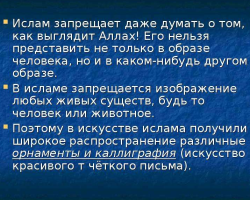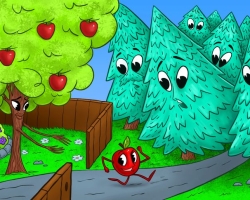If you do not know how to answer the word “in the sense”, then read the article. It has many interesting options.
Content
- "In terms of?" - How to answer a word, if you mean "in what sense?": Options
- “In the sense of?”: How to answer a word if the interlocutor did not understand the request?
- “In the sense of?”: How to answer the word if the question is asked out of place?
- "I mean?": Other interpretations of the issue
- "I mean?": A question for all occasions
- Video: How beautifully to answer any question - Dmitry Nagiev
We often use specific, hackneyed phrases in our colloquial speech, which everyone has by ear. People do not even think where they came from. Many do not even know how to answer correctly if such a phrase is asked in the form of a question.
Read in another article on our website about the origin of the phrase "Who is well done? I'm fine fellow!". You will find out where this phrase comes from, what source and where you can hear.
In this article we will tell you how to answer the question correctly "in what sense". Read further.
"In terms of?" - How to answer a word, if you mean "in what sense?": Options

As a rule, this question "in what sense?" There are 2 interpretations:
- In what sense?
- I did not understand the question (and I do not want to understand)
In the first case, some incompleteness of formulation is felt. The questioner wants the answer to “think up” the essence, and then hand it over to him in an accessible form. How to answer a word if you mean "in what sense?".The answer options are simple:
- In direct, naturally
- Of course, not literally
- In the sense, in which you will not be offended
- I mean, I'm not joking
- I thought that you realized
Now let's figure out how to answer if your friend did not understand what you are asking. Read further.
“In the sense of?”: How to answer a word if the interlocutor did not understand the request?
AT 90% This question is asked cases if a person simply could not understand what they want from him. There is a need to explain the meaning of the request or instruction to the interlocutor. And, perhaps, to bring to his knowledge why this must be done. How to answer a word "in what sense?", if the interlocutor did not understand the request? Of course, it should be said firmly and uncompromisingly so that the second participant in the dialogue does not think of assisting. For example:
Here is the first dialogue:
- Vitya, what are you standing? Take a mop!
- What?
- Without meaning. After an hour, parents return, and the apartment must be removed. I, like an older brother, then I do not want to puff for you. So work!
Second dialogue:
- Katya, are you still here?
- What?
- What are you, don't you remember? Every Friday you will now help pensioners. So that you quickly have breakfast and go to the veteran, she was already waiting for you.
Third dialogue:
- So you will never solve this problem.
- What?
- Here, let's show you. Here it should be considered completely wrong. And because of your mistake, the whole decision will be wrong.
As you can see, it is easier to understand with an example. Below even more explanations. Read further.
“In the sense of?”: How to answer the word if the question is asked out of place?

Some interlocutors are especially cunning. They ask a question "in what sense?" Exclusively in order for the storyteller he will again go into lengthy explanations. And they themselves use a pause and quickly invent the answer. If a constant word "in what sense?" In speech, it annoys or sets with obvious mockery or out of place (while a person understands what they want from him), then you can answer rudely:
- What? - In the rod!
- What? - Thinking yourself!
- What? - Without meaning
- What? - in direct!
- In terms of! - The snot hung on the nose!
- What? - Yes, without sense, I'm just crucifying you here.
- Probably there is no sense. You can’t explain anything anyway.
Now you know how to answer this question from your interlocutor. Below are even more interpretations. Read further.
"I mean?": Other interpretations of the issue
There is another interpretation of the issue "in what sense?" — "why?". She may not carry irony or mocking connotation in herself. You should answer something like this:
- Explain to you? Okay, I'll explain now.
- This is a metaphor, do not pay attention.
- Are you wondering what context?
- What, did the unknown term hear?
- Do not take it in mind, this is such a saying.
Choose an interpretation on your occasion and shine with intelligence. Read further.
"I mean?": A question for all occasions
In general, the question "in what sense?" It is interesting in that it is worth answering it with a focus on the situation. This is a question for all occasions. A person may not sincerely understand what is required of him, he can fade a fool and take off from actions, or he can simply listen to important information. Indeed, at the time when everything was explained to him, he simply hung in the clouds. One way or another, the phrase provides for clarification. Therefore, you need to provide it.
Video: How beautifully to answer any question - Dmitry Nagiev
Read on the topic:







